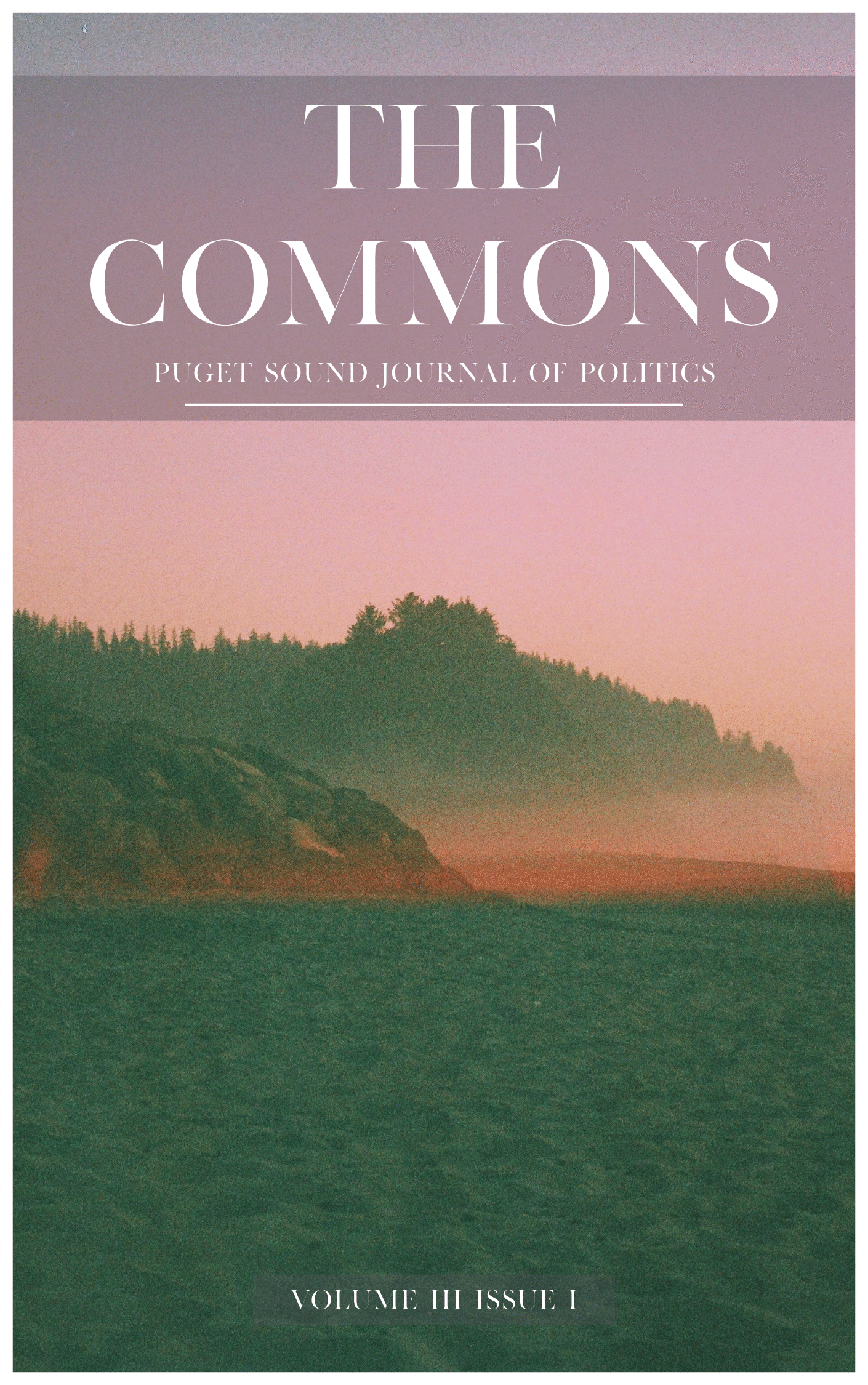Volume 3, Issue 1 (2022)
Letter from the Editors
Dear Readers,
Since the journal’s start in early 2020, the mission of The Commons has been to map meaning onto political phenomena through systematic, often interdisciplinary, inquiry. We have been so grateful for the opportunity to spotlight student scholarship that charts, challenges, and deepens knowledge through research and writing. While research remains a highly valuable venue to uncover facts and consolidate findings, we recognize that other avenues for academic exploration are necessary to expand our awareness of our larger political world. For this Summer 2022 issue, we are excited to publish an array of papers that take different approaches to questions about power, place, and purpose in a changing—or, perhaps, unchanged—political climate. This collection of scholarship shows how we, as a publication, can promote a fuller fount of early academic talent, while staying true to our founding principle of uplifting important interdisciplinary undergraduate work.
Included in this issue are perspectives on how the past continues to inform our reckoning with the present. Ethan Stern-Ellis draws on the disciplines of spatial mathematics, computer science, and political science to discuss how electoral districting in Ohio can be made more accurate, addressing areas of improvement in previous algorithmic models of political representation. Interested in exploring how people actually “…inhabit and interact with space” and how that revised knowledge informs how we define and delimit our country electorally, this author and his team take stock of learnings from earlier experiments in architecting their own solution, all while tackling the issues of gerrymandering and electoral equity that inflect the present political moment.
By bringing to bear the historical intricacies of the five-day war between Russia and the Republic of Georgia, Kris Bohnenstiehl engages with the Western ethos at the root of an enduring power struggle that continues to inform diplomatic relations. This author approaches this case study from a micro and macro perspective, establishing the significant precedent that engendered the very political figures and configurations at the forefront of Georgian state development and the country’s struggle towards self-determination. Now more than ever, this paper reminds us that localized conflict demands a global discourse, and that the prospect of peace hinges on the attention and commitment of more than any one, single state actor.
Intersecting the fields of African American studies and educational studies with a purposeful focus on personal point-of-view, our third article critically approaches a problematic pedagogical practice — in-class “simulation” of or “hands-on” engagement with historical events—and its place in perpetuating more subversive shades of racism in America. Tending to topics of transgenerational trauma, historical memory, and personal retrospection, Leona DeRango engages with “what [they] do not see” with regards to the past and the present, reminding readers that race, politics, and history affect how we see and seek knowledge of the past and “knowings” of the now.
Publishing this outstanding scholarship would not be possible without the support of our faculty reviewers, faculty advisors, and administrative staff. We are especially thankful for the support of Professor David Sousa and Irene Lim, whose guidance and generosity helped carry us through the challenges of resumed in-person meetings. And, of course, we would like to express our deepest gratitude to our Editorial Board. We are incredibly proud of the work of our peers in not only curating this issue, but expanding the goals of The Commons itself. By engaging in conversations on the limits of accessibility within academia, research, and pedagogy, The Commons staff demonstrated a commitment to progress and innovation by pushing critical theory well beyond the limits of a classroom. While graduating is bittersweet, we know that we are leaving the journal in excellent hands that will continue to shine light on undergraduate scholarship that delves deep, delivers insights, and disrupts our sense of our larger political world
The Commons: Volume 3, Issue 1
Kris Bohnenstiehl, Leona DeRango, and Ethan Stern-Ellis
Who Sent the Devil Down to Georgia? An Analysis of the Causes of the Russo-Georgian War of 2008 and its Effects on Georgian Democracy
Kris Bohnenstiehl
Balancing Populations of Electoral Districts
Ethan Stern-Ellis

Editors
- Editors in Chief
- Lila Bernardin & Hannah Williams
- Head Copyeditor
- Emma Fish
- Layout Editor
- Julia Gabriele
- Outreach Coordinator
- Ella Frazee
- Media Coordinators
- Katherine Doing, Hannah Merrill Woodward, and Madeline Norton
- Copyeditors
- Brooke Berlin
- Nathan Sansone
- Editorial Board
- Brooke Berlin
- Katherine Doing
- Anna Edmunds
- Emma Fish
- Ella Frazee
- Lucy Gifford
- Abby Loboda
- Hannah Merrill Woodward
- Emily Mitchell
- Madeline Norton
- Riley Ofrecio
- Lucy Peloso
- Nathan Sansone
- Jack Simermeyer
- Cover Image
- Neskowin Beach, Oregon Coast
- Shot in 35 mm film
- Photographed By
- Nola Thury
- Special Thanks To
- David Sousa, Faculty Advisor
- University of Puget Sound
